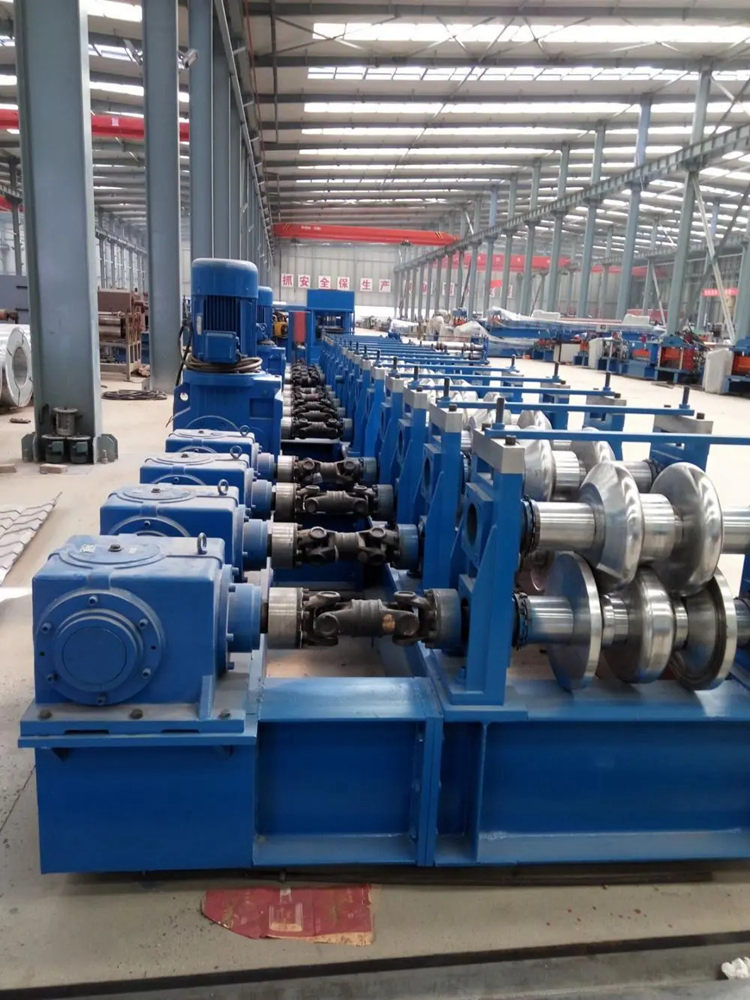
Understanding the Corrugated Sheet Roll Forming Machine
Corrugated sheet roll forming machines are innovative pieces of equipment integral to the production of corrugated sheets used in various industries, including construction, packaging, and roofing. This machinery harnesses the principles of metal forming to create durable, lightweight sheets that provide excellent insulation and strength. In this article, we will explore the workings, benefits, and applications of corrugated sheet roll forming machines.
The Basics of Roll Forming Technology
Roll forming is a process in which metal strips are passed through a series of rollers that gradually shape the material into a specific profile. Unlike traditional methods of metal shaping, roll forming is continuous, allowing for efficient production of long sheets that retain consistent quality and precision. The corrugated sheet roll forming machine is specifically designed to produce corrugated profiles, characterized by their wave-like structure, which enhances the strength and rigidity of the sheets.
The process begins with a flat metal coil that is fed into the machine. As the coil progresses through the rollers, it is incrementally shaped into a corrugated form. Each set of rollers is meticulously designed to perform specific shaping functions, ensuring that the final product meets the required specifications. Advanced computer Numerical Control (CNC) technology is often employed to enhance precision and automate the production process further.
The Benefits of Using Corrugated Sheet Roll Forming Machines
1. Efficiency and Speed One of the standout features of corrugated sheet roll forming machines is their ability to produce large volumes of sheets quickly. This efficiency translates to lower labor costs and faster turnaround times for manufacturers, making it easier to meet market demands.
2. High-Quality Products The continuous nature of the roll forming process ensures that the corrugated sheets produced exhibit consistent quality and uniformity. Moreover, these machines can handle a variety of materials, including galvanized steel, aluminum, and other metals, which allows for flexibility in product offerings.
3. Cost-Effectiveness Although the initial investment in a corrugated sheet roll forming machine can be significant, the long-term advantages, such as reduced labor costs and minimized waste, make it a cost-effective solution for manufacturers. The durability of the finished products also means lower replacement and maintenance costs for end-users.

4. Customization Modern corrugated sheet roll forming machines often come with customizable features, allowing manufacturers to create different sizes, profiles, and thicknesses of sheets to cater to specific customer needs. This customization capability is crucial in competitive markets, where differentiation is key to attracting customers.
5. Sustainability With increasing emphasis on eco-friendly practices, many manufacturers are turning to roll forming machines that have a lower carbon footprint. These machines can produce sheets from recycled materials, contributing to sustainability efforts in various industries.
Applications of Corrugated Sheets
Corrugated sheets produced by roll forming machines find applications in numerous sectors
1. Construction In the construction industry, corrugated sheets are often used for roofing and siding due to their strength and ability to withstand extreme weather conditions. They provide excellent insulation and can be coated to enhance their durability and aesthetic appeal.
2. Packaging Corrugated sheets are essential in packaging for their lightweight yet sturdy nature. They provide protection for fragile items during transportation and storage, making them a preferred choice for many packaging applications.
3. Automotive and Manufacturing The automotive industry uses corrugated metal sheets for various components, including body panels and chassis parts, taking advantage of their strength-to-weight ratio. Additionally, manufacturers utilize these sheets for creating storage containers and industrial components.
Conclusion
In conclusion, corrugated sheet roll forming machines represent a vital advancement in manufacturing technology. They enable the efficient production of high-quality corrugated sheets that serve various applications across different industries. As the demand for sustainable and cost-effective building materials grows, these machines will continue to play an essential role in shaping the future of manufacturing practices. By investing in corrugated sheet roll forming technology, companies can not only improve their operational efficiency but also contribute positively to environmental sustainability efforts.